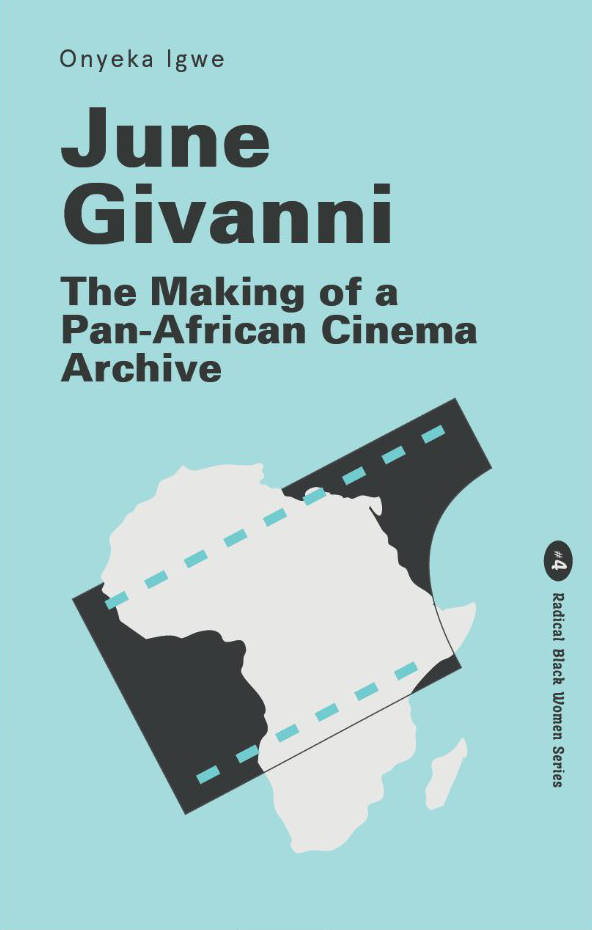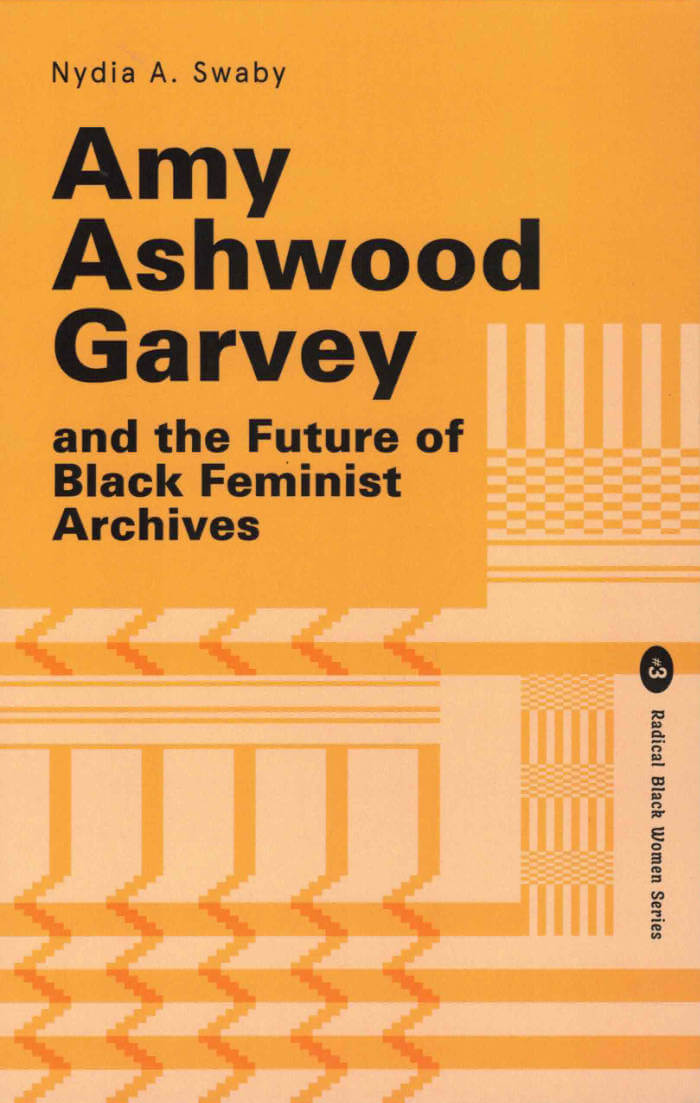LW Books
LW Books

June Givanni: The Making of a Pan-African Cinema Archive
A journey through the archive of BAFTA award-winning curator and film programmer, June Givanni. This private collection made public contains thousands of films from across Africa, the Caribbean and the diaspora amassed in a career spanning more than forty years. Using oral history interviews and ephemera from four film festivals as her touchstones, author Onyeka Igwe offers a way to encounter Pan-African film through the archive.
The book starts with Third Eye, the film festival that propelled June into a career in Pan-African cinema. Through connections she made there, she travelled to FESPACO in 1985. Participating in the festival while Ouagadougou, Burkina Faso was under the leadership of revolutionary Thomas Sankara was a formative experience. In Ouagadougou she connected with film programmers Suzy Landau and Claire Andrade Watkins, who would take steps to organise Images Caraïbes, Fort de France, Martinique, 1988, and Celebration of Black Cinema, Boston, US.
Using original oral history research with June and other key figures in Pan-African and Black British cinema, Onyeka uncovers the important role that women festival organisers, programmers and cultural workers have played in Pan-African cinema history. She conceptualises June Givanni’s Pan-African Cinema Archive (JGPACA) as a feminist counter archive that foregrounds marginalised histories and proposes a radical approach to archiving itself. In tracing and naming the cinematic legacies that ground political filmmaking practices today, she preserves June’s work, knowledge and fervour for Pan African cinema for future generations.

Amy Ashwood Garvey and the Future of Black Feminist Archives
This book charts the journey of Black feminist, artist, researcher and curator Nydia A Swaby as she pieces together a biography of Pan-Africanist and feminist Amy Ashwood Garvey from her scattered archive. In turn, it offers a reflection on the future of Black feminist archival practice.
Often referred to as the first wife of Marcus Garvey, Amy Ashwood Garvey’s contributions to movements for social justice, and in particular Black women’s rights, have largely been forgotten, not least since archives about her life and work are spread across the various places she lived.
After helping Marcus Garvey set up the UNIA, one of the most influential Pan-African movements in the world, Amy moved to New York, where she thrived in the Harlem Renaissance. In the 1930s she emigrated to Britain, where she set up a boarding house and social centre called the Afro People’s Centre, and a club called the Florence Mills Social Parlour. Swaby recovers Amy’s life and work as an important political activist, cultural producer and Pan-Africanist in her own right, retracing her steps across the Caribbean, US, Britain and West Africa.
In addition to conducting traditional archival research, Swaby creates a series of ‘curatorial fabulations’, imagining into the gaps in the archive with her autoethnographic practice. Drawing on the work of contemporary Black feminist researchers, archivists, curators and artists, and her own creative practice, Swaby animates the process of creating and curating Ashwood Garvey’s archive. In doing so, she reflects on the practice of Black feminist archiving past, present and future.
This is the third book in LW’s Radical Black Women Series. It will be essential reading for scholars and students of Black feminism, Pan-Africanism, Black British history, Black arts and archival practice. Endorsements forthcoming from leading scholars in the field including Carole Boyce Davies, Ego Ahaiwe Sowinski, Kelly Foster, Kesewa John and Lola Olufemi.